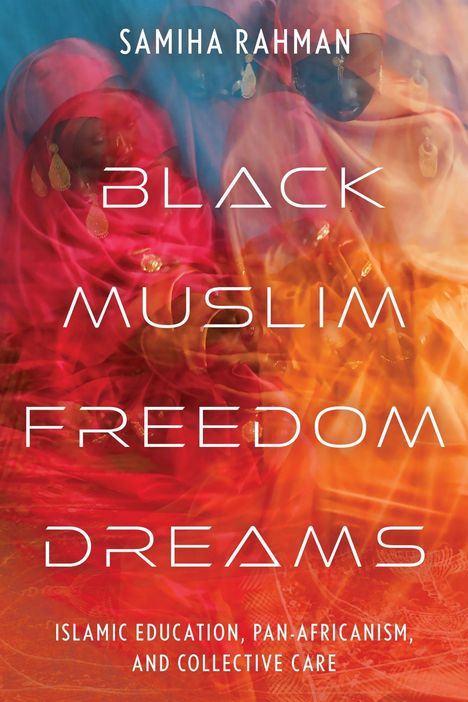Samiha Rahman: Black Muslim Freedom Dreams, Kartoniert / Broschiert
Black Muslim Freedom Dreams
- Islamic Education, Pan-Africanism, and Collective Care
Sie können den Titel schon jetzt bestellen. Versand an Sie erfolgt gleich nach Verfügbarkeit.
- Verlag:
- New York University Press, 04/2026
- Einband:
- Kartoniert / Broschiert
- Sprache:
- Englisch
- ISBN-13:
- 9781479838219
- Artikelnummer:
- 12537608
- Umfang:
- 336 Seiten
- Gewicht:
- 454 g
- Maße:
- 229 x 152 mm
- Stärke:
- 19 mm
- Erscheinungstermin:
- 14.4.2026
- Hinweis
-
Achtung: Artikel ist nicht in deutscher Sprache!
Weitere Ausgaben von Black Muslim Freedom Dreams |
Preis |
|---|---|
| Buch, Gebunden, Englisch | EUR 120,25* |
Klappentext
Explores three generations of Black American Muslims pursuing education and liberation beyond the borders of the United States
Since the 1970s, hundreds of Black American Muslims in the Tijani Sufi order have sought refuge in a new world that would nurture their racial, religious and gendered identities away from anti-Black and anti-Muslim racism in the United States. This new world is in Medina Baye, a city in Senegal that is the headquarters of a pan-African Sufi movement with tens of millions of members in Africa alone.
Drawing on a decade and a half of ethnographic engagement, Black Muslim Freedom Dreams explores the Islamic educational opportunities created for and by Black American Muslims in Medina Baye, chronicling the dreams, sacrifices, struggles, and joys of young people and parents who live, learn, and strive for liberation between the United States and Senegal. The volume traces their journeys between these two worlds, zooming in to vividly portray everyday Black American and West African religious life, and zooming out to map the sociopolitical landscapes, educational conditions and Islamic and pan-African ideologies that shape believers' perspectives.
Black Muslim Freedom Dreams argues that Black Muslims' experiences of Islamic education and pan-African exchange are oriented towards collective care -- a radical way of being and belonging through which believers journey on the path towards Allah's love by caring for one another and addressing the material inequities that constrain their communities. This notion disrupts narratives of religion that are limited to systems of personal belief, showcasing instead how their educational experiences foster a collective responsibility and solidarity. The book offers a compelling account of how Black Muslims engage with transnational religious and racial networks to build liberatory communities beyond the United States.

